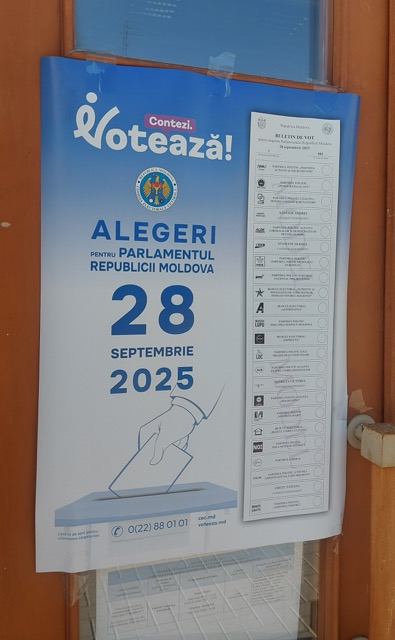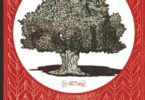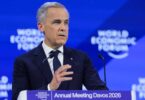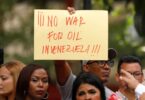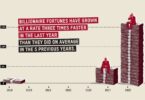As expected, the ruling Action and Solidarity Party (PAS) won the parliamentary elections in Moldova last Sunday, 28 September. Less expected, however, was the final result: PAS accumulated 50.17 percent of the vote, which translates into about 55 mandates (eight fewer than before) in the Moldovan Parliament and gives PAS the possibility to appoint a prime minister and ruin the country with a comfortable majority.
Some additional surprises are also worth mentioning: namely, a somewhat worse than expected performance of the “Alternativa” electoral bloc (7.97%), a centrist platform built around the mayor of Chișinău, Ion Ceban, who many expected to perform better, a lower performance of the main “opposition” force, the pro-Russian Patriotic Electoral Bloc (BEP) of the Socialists and the Communists (24.17%), and the emergence of two new political forces, Partidul Nostru (Our Party) of Renato Usatîi and Democracy Home Party of Vasile Costiuc, with 6.20 percent and 5.62 percent respectively. Strongly personalistic, these two new parliamentary parties are dependent on the media influence of their leaders (Costiuc especially was promoted vigorously on TikTok in the last weeks of the campaign, but he is active in politics for at least 10 years) and are reflective of the new age of social media in Moldovan politics.
PAS won the elections on a militantly pro-European platform, in an electoral campaign dominated entirely by discussions about geopolitics, fearmongering about a potential disruption of the EU integration process, and possible Russian interference in the elections or even subsequent invasion.
Fear as a Political Tool
European leaders, including Commission President Ursula von der Leyen, framed the elections as a triumph of democratic resilience, telling Moldovan voters that “No attempt to sow fear or division could break your resolve. You made your choice clear: Europe. Democracy. Freedom.” The implication was clear: Moldovans had resisted the divisive tactics of the opposition and instead chosen the European path. Yet, on the ground, the story is far less straightforward. The atmosphere during the campaign was thick with fear, militarized language, and geopolitical drama emanating from both sides. The ruling party, PAS, leaned just as heavily on mobilizing fear, warning of chaos, war, and a halt to European integration should voters turn elsewhere.
This gap between the external and internal narratives is telling. From the viewpoint of Brussels or Berlin, Moldova’s election looks like a simple contest of values: democracy versus division, Europe versus Moscow. Within Moldova itself, however, this apparently simple binary was a little murkier.
The elections were less about inspiring visions of reform or practical solutions to everyday hardships, and more about who could most effectively channel popular anxiety.
Fear is not new to Moldovan politics, but in 2025 it became the central currency of electoral competition. Although PAS succeeded in retaining power, its new mandate differs significantly from its previous mandate acquired in 2021. Back then, PAS gained the votes of 52.80% of the electorate on the promise to reform the justice sector, fight corruption, improve the lives of ordinary Moldovans, grow the economy, and rebuild the state after the oligarchic rule of Vlad Plahotniuc. It was a mandate for hope – hope that Moldova under PAS would become better than the country the party inherited. Yet governing proved to be more difficult than opposition. Apart from the (very real) resistance put up by the oligarchic system, PAS also had to confront its own internal demons: real internal struggles for power among various factions, the incompetence of party cadres in managing the economy and implementing reforms, and, perhaps most centrally, a very volatile regional context that culminated with the Russian aggression in Ukraine.
Thus, in the runup to this year’s elections, PAS had little to show in terms of achievements in the areas it made the biggest promises. Lacking real achievements to campaign on, the party had to use other strategies. PAS presented itself as the only trusted partner of the EU, even the only political force capable of guaranteeing EU integration will continue. PAS branded itself as the only party that preserved peace and prevented the war in Moldova, defending the country from constant (mostly real, but sometimes exaggerated as a political tool) Russian interference.
Throughout the campaign, PAS representatives declared that, should people vote for any other party, the EU integration process would simply be halted – a claim that the frequent visits of various EU dignitaries seemed to confirm. PAS also told voters that if the party were to lose the vote, nothing could stop Putin’s tanks from pulling Moldova into the war in Ukraine on the Russian side. The Moldovan diaspora in the West was told in apocalyptic tones that a loss for PAS would see all these thousands of people and their families in the EU sent back to Moldova – another specious claim that European leaders made no attempt to deny.
The opposition, particularly the BEP, mirrored this tactic and wrote up its own list of monsters that would invade Moldova should PAS remain in power. Thus, the former president and leader of BEP, Igor Dodon, was seriously claiming that PAS would drag Moldova into war by opening a second front in Transnistria, the separatist enclave protected by Russian troops since 1992. “If PAS remains in power, the Sorosists will force [Moldovan president Maia] Sandu to attack Transnistria together with Zelensky and open a second front there — in support of Ukraine and against Russia.”
At the same time, electoral participation for the Moldovan diaspora in Russia was restricted, with only two polling stations serving a population of more than 100,000 people. In contrast, Germany, with a roughly similar number of Moldovan migrants, had 36 voting stations, Italy – 76 voting stations and France – 26 voting stations. It is clear that there is more than one Moldovan diaspora, and it is also clear that not all the diasporas are equal and the current government has heavily favored one diaspora over others.
Militarization of Political Discourse
What made these elections stand out was not only the parties’ reliance on fear, but the militarization of political discourse. During the campaign, Moldovans were told that the ballot box was their weapon: the only defence against Russian tanks. After the vote, the victory was celebrated not as a victory in a democratic contest, but as a battle fought and won against an enemy. PAS president Igor Grosu even declared: “Moldova showed to the whole world that Russia can be defeated.” Local political commentators, supporters of PAS and even the international media have reported the results of the elections as a victory of Moldova over Russia.
This language matters.
Framing elections as warfare changes the nature of politics itself. Elections cease to be about negotiation, compromise, or civic participation — they become warfare. Opponents are no longer rivals within a democratic system, but enemies to be defeated. Supporters are no longer citizens exercising rights, but soldiers in a political army.
Economics disguised as geopolitics.
Utterly obscured in this campaign dominated by fear and geopolitics were debates over justice reform, the economy, the housing problem in Chișinău (where prices have doubled in the last several years) or poverty reduction.
The campaign contained little in terms of concrete policies to solve the many problems that the country faces: demographic decline (which is made worse by a combination of aging population and immigration of the youth and professionals), poor economic growth (only 0.1 percent in 2024, with 0.9 percent expected this year), inflation (between 2021 and 2024 the cumulative rate of inflation was around 60 %), decline in purchasing power, and poverty.
According to official data, in 2024, 33.6% of the population lived below the absolute poverty line (household expenses were less than 3,493 lei per month). The rural-urban gap within this group is significant: 42.9% in rural areas compared to 21.6% in urban areas lived below the absolute poverty line. Nearly half of agricultural employees (46.3%) and 47.6% of self-employed farmers lived below the absolute poverty line. Even in the non-agricultural sector, 18% of employees faced absolute poverty, and 45.4% of individuals engaged in self-employed non-agricultural activities lived below the absolute poverty line.
The minimum wage in the Republic of Moldova (set at 255 EUR in 2024 and 281 EUR in 2025) does not cover essential expenses for food, housing, health, or education. Instead of serving as a tool of social protection, it perpetuates precarity. At the same time, although the official average salary is constantly increasing (791 EUR in 2025), data show that approximately two-thirds of employees earn less than or equal to the average wage. The reality behind the average wage shows that this growth is polarized, concentrated in a few sectors and inaccessible to the majority of workers.
A sectoral and industry-level analysis reveals huge discrepancies: in the sector of information and communication salaries are 150% higher than the average (1802 EUR); in finance and insurance sector the salaries are 81% higher than the average (1312 EUR) and in the energy sector the salaries are 50% higher than the average (1085 EUR). By contrast, at the lower end in the social assistance sector salaries are 49% below the average (355 EUR), in agriculture the salaries are 36% below the average (465 EUR), in the arts the salaries are 28% below the average (520 EUR) and in education they are 19% below the national average.
For these reasons, the economic performances reported by PAS do not reflect increasing well-being and prosperity, but instead are masking growing polarization and social inequalities. A few privileged and small sectors concentrate on very high wages, while the majority of workers remain far below a decent standard of living.
Furthermore, the campaign did also not feature the long due discussion about the ways in which the economy of (probably) the poorest country in Europe, one based on remittances (15.48 % of GDP in 2021, 10.5 % in 2024), agriculture (subject to caprices of weather), little industry and services and external trade (continuously affected by the Covid pandemics but also by the ongoing war in Ukraine) could be transformed into a more robust one, more resilient to external factors, better positioned in the global value chains, and most important, more capable of delivering prosperity to Moldovan workers.
Untouched (and undiscussed) remained also the very model of development of the country which relies on the attraction of foreign investment based on cheap labor force (i.e. on the exploitation of workers and weakening the protection of their labor rights – it is not surprise that almost every government begins its mandate by amending the Labor Code) and concentration in industries with low added value (mostly textiles and cabling for the automotive).
To put it simply: the campaign had very little to offer in terms of promises/solutions to a single mother of two, working in a textile factory in a provincial town, who sees the prices rise, who fears to be fired if she asks for an increase in wage, for whom this type of job is probably the only one in her town, whose kids dream about growing up and leaving the country in search of better opportunities.
Instead, the campaign focused on geopolitical issues that may have a real impact on the everyday lives of Moldovans, but which national politics can hardly influence. This reflects a trend related not only to the campaign – over the years, the political class in Moldova (both PAS, but also their opposition) have geopoliticized all the important discussions in the society, connecting them with ”geopolitical choices”, to the extent to which geopolitics has cannibalised almost the entire political process in the country (a somewhat absurd consequence of this is the fact that, even during the local elections, people are still invited to think about geopolitics and geopolitical choices). The situation is not likely to change in the next few years.
Conclusions.
It is hard to predict how the second mandate of PAS will unfold, but there are strong reasons to believe that it will not differ greatly from the previous one – same people, same ideas and same program of governance.
Because it brought the party an electoral victory, we could expect that PAS will continue to use beyond the campaign the militant rhetoric that combines militarized language and geopoliticization of the political process. The combination of these two is particularly pernicious.
The danger is that such militarized rhetoric legitimizes a permanent state of political emergency, in which dissent is treated as betrayal and work for a foreign country while legitimate democratic criticism is being equated with aiding the enemy. Instead of strengthening democracy, this mindset hardens divisions and breeds intolerance.
Fear-based and militarized politics might deliver short-term electoral victories, but they weaken the long-term foundations of democracy. Citizens become accustomed to voting not for platforms they believe in, not for real solutions for their problems, but against (less subject to control) threats they are told to fear. Opposition parties, regardless of their merits, are delegitimized as existential dangers, and governments, instead of being held accountable for their performance, justify shortcomings by pointing to the ever-present spectre of external threats.
In Moldova’s case, the consequences are particularly striking. PAS won another term, but not with a mandate of hope or reform. It won with a mandate of fear and that sort of mandate is built on shaky ground because it leaves the party vulnerable to disillusionment once the fears it invokes fail to materialize or once people grow tired of living under permanent threat.
Worse, it risks creating a democracy where elections are no longer moments of civic deliberation, but ritualized battles in a never-ending war of narratives.
In terms of economic policies, it is expected that the trend to further neoliberal restructuring of the Moldovan economy will continue. The current economic vision of PAS – the development of infrastructure and doubling the exports of Moldovan goods and services looks great on paper but tells little about how this will be achieved. Even more, doubling the exports without changing the way the economy of the country works, means perpetuating its current problems.
In terms of social policies, everything points to the fact that no dramatic transformations are likely to occur. PAS promised to double the income of the population, measured in terms of the average wage – it doesn’t translate into prosperity for all, but rather it increases social inequality.
Vitalie Sprînceană, sociologist and activist.
Lilia Nenescu, anthropologist, artist and activist.
An abridged version of this article was published on Rosa Luxemburg Stiftung website.



